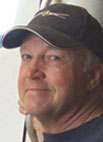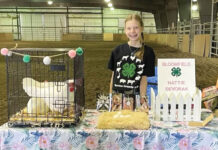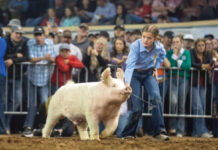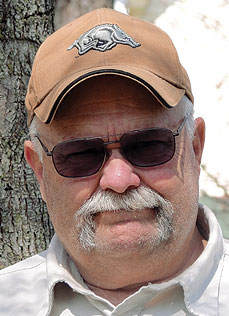
Located just outside Cameron, Okla., the French Ranch combines family tradition with modern know-how and a big dose of self-reliance to stand proudly as one of the larger stocker steer operations in Eastern Oklahoma.
Buddy French typically runs over 3,000 head on the 3,000 acres that his father, R.E. "Bud" French first purchased over a half-century ago.
"Dad bought it in 1953 at an auction for back taxes," said French. "He spent some time in the military, but he’s never punched a time clock."
At age 85, Bud French still helps his son Buddy work the ranch that he started, along with his grandsons Jake and Eli French. Bud’s wife, Margaret, also works on the ranch that’s seen three generations of her family.
"Mom, she’s the boss. You can’t get better help than family," said Buddy. "We built everything ourselves, and it’s all family. We don’t hire labor."
Eli French has a business degree from the University of Arkansas, and also manages a family-owned convenience store near the ranch. Jake French has chosen the family farm tradition as his career.
"He stayed on to work the ranch and we need the help," said Buddy.
Near the corral fenced with old highway guardrail stands the French Ranch feed barn. Half of the barn is the original structure built of poles and lumber for storing square bales in 1953 and ‘54 for $800, and the other half is a $30,000 dollar structure used for mixing high yield feeds, erected in 2001.
"We have really good pastures," said Buddy. "Dad’s a grass man, and we try to do better than average with the pastures. We spray for weeds and spread chicken litter, and try to improve our pastures."
But steers do not live by grass alone on the sprawling French Ranch. Buddy stores and mixes around 1,250 tons of feed per year. "We have mixed our own feed for years," said Buddy. The feed rations are based on numbers provided by the nutritionist at the Farmer’s Coop in nearby Poteau, Okla.
"We used to feed a lot of corn, but it got too high," said Buddy. "Lately, we’ve switched to hominy feed instead of corn because we got a better price. But we feed good stuff."
Buddy says that quality in all areas is the key to the success of the family stocker operation. "Quality is number one. With livestock, you get what you pay for. We want to do it right, and do it right the first time."
While many of the challenges a large-scale stocker operation face are common to all cattle growers, Buddy does see some concerns unique to running large numbers of steers.
"We fight health a lot," said Buddy, "diseases and pneumonia, but it’s not like a cow-calf operation. Just not anybody can be in the stocker business. Most cow-calf operations have lower numbers. It takes a lot of cash. We just bought 100 head of stockers for $560 each, and that’s $56,000 on just one truck. We get a couple of those trucks a week."
Buddy sees the current economic situation as tough, but manageable for the French Ranch.
"It’s put the squeeze on us, but we won’t go broke," said Buddy. "It’s no good for us if more people buy bologna and hotdogs instead of steaks."
Although the French Ranch has performed well, Buddy doesn’t see much chance for many new stocker operations starting up in Eastern Oklahoma in the future, especially not the size of the French Ranch.
"We’re pretty big for this part of the country," said French. "We just have too many people living around here to have enough room to run this many cattle."
Even with all the links to the past, the French Ranch continues to look to the future. "We’re not cowboys," said French. "We haven’t had horses on this ranch in 25 years, and I couldn’t rope you if you were standing still." Instead, the French Ranch relies on ATVs and a very large feed spreader truck, along with modern medicines and detailed record-keeping to ensure the family business sees another half century of operation.







